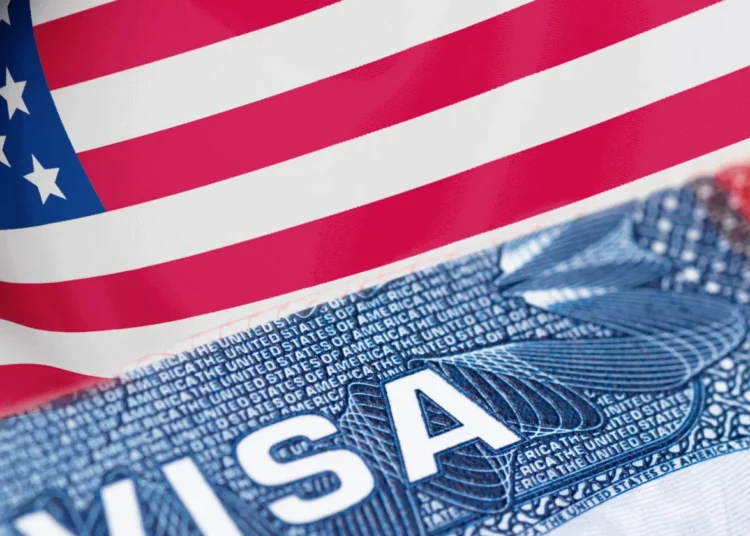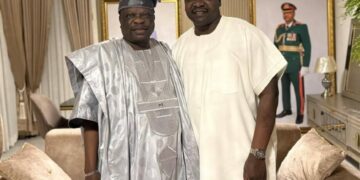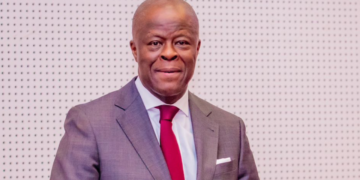Just as many Nigerians have expressed dismay at the new United States visa policy for Nigerians seeking to enter the country, which appears embarrassingly restrictive, many Nigerians have been jolted to the bitter reality about the need to develop the country to minimize the craze to seek greener pastures abroad otherwise called ‘Japa’ syndrome.
Last Monday, the US mission in Abuja in a message on X, its official social media handle formerly known as twitter, mandated Nigerian visa applicants to disclose their social media profiles and activities in the last five years, stressing that failure to comply with the requirement could lead to denial of entry into the US.
This was an update on an earlier and similar regulation targeted at international student visa applicants, which mandated them to list and also remove the privacy settings from their social media handles to allow for proper vetting of the applications.
The US Embassy noted that this decision has become necessary as the regulation is part of efforts by the Donald Trump administration to “ensure national security” in the ongoing immigration tightening measures.
The new rule also stipulates that visa applicants are now required to provide information on their User ID, including the email address, Username, handle, and telephone number on all the platforms and applications they have used in the last five years.
The US also requires applicants, who have also used more than one platform or more than one username, handle or telephone number on a single platform within the same period, to list them in the DS-160 form.
The Nigerian government through the Ministry of Foreign Affairs, expressed deep concerns about this worrisome and persistent US effort to allegedly undermine Nigerian visa applicants, and vowed to present an interagency response to this threat.
However, Nigerian experts in international affairs and diplomacy hardly faulted the US but charged at the Nigerian leaders to stop corruption in the country and build a productive and competitive economy as well as infrastructure that will create jobs in order to stop the Japa syndrome.
Renowned professor and a senior lecturer with the Department of Political Science and International Affairs, Chrisland University, Abeokuta, Babafemi Badejo, said the US has the right to decide on the conditions for obtaining its visa. He added that the Nigerian government can negotiate with the US government if they feel any condition violates any of the treaties that govern state relations otherwise; Nigeria can impose reciprocal conditions on US citizens seeking Nigerian visas.
He said “The crucial solution to the problem Nigerians face in a number of countries is to stop corruption and profligacy and use the abundant resources the country has to invest in infrastructure and other aspects of development to make Nigeria very attractive to Nigerians.
“How many Nordic nationals are dying to be allowed into the United States? In the 1970s, through to part of the 1980s, Nigerians were welcomed in many parts of the World. The Nigerian leadership needs to effect positive changes that make Nigerians less interested in ‘Japa’. However, it seems this is wishful thinking on my part. The rapacious looting of national patrimony is not about to end.”
On his part, former Permanent Secretary of the Ministry of Foreign Affairs, Ambassador Bulus Lolo, noted that the US has the prerogative to impose any condition for the procurement of visas to enter its territory.
He said “What is playing out is an extension of the internal policy of the Trump administration to keep a close watch on the activities of foreigners who either reside in or enter the US. So far, it is on record that the US State Department has revoked up to 6,000 student visas since President Trump assumed office in January 2025.”
The former Nigerian envoy to Ethiopia noted that asking Nigerian applicants to disclose their social media profile and activities is to enable US consular officers to scrutinize and know more about the applicants from their social media activities in order to assess whether the applicants are the type of people to admit into America.
He said “while the rationale for the requirement may not be far-fetched from the objective of enhancing national security, the choice is for the applicants to assess what they have to give away for the invasion of their privacy. There is little the Nigerian government can do to ameliorate the situation and the only response would be to retaliate. It goes without saying that the number of Americans who apply for Nigerian visas compared to the Nigerians who apply for US visas is miniscule.”
Contributing, former Nigerian High Commissioner to Singapore, Ambassador Ogbole Ode, said it has become obvious, from recent visa policy reviews, that the US is simply shutting its doors on Nigerians for whatever purpose.
He pointed out that the Donald Trump administration is looking for whatever excuse in order to make things tougher for Nigerian travelers.
“They are very much aware that for a lot of our compatriots, the possession of an American (multiple entry) visa is a social status symbol. Perhaps, those of our compatriots who have US (dual) nationality should begin to watch out. This is, to me and for a better phrase to use, ‘visa bullying’” he said.
International constitutional law expert, Livingstone Wechie, frowned at the apparent humiliation of Nigerians but insisted it was a wakeup call for Nigeria and other African countries to revamp their economies.
“I support everything Trump does to humiliate Africa so long as we make him not only regret later but to give ourselves the opportunity to walk into our delayed greatness that has been hiding under timidity.
“The Nigerian state must lead the rest of Africa to review our relationship with the West through practicable and actionable domestic, regional and foreign policy frameworks that are aimed at repositioning our economy to bargain with and not beg the West,” he said.





